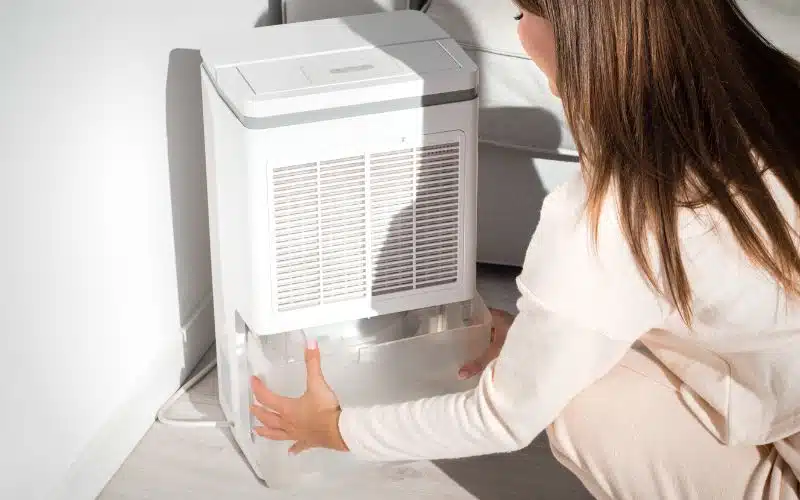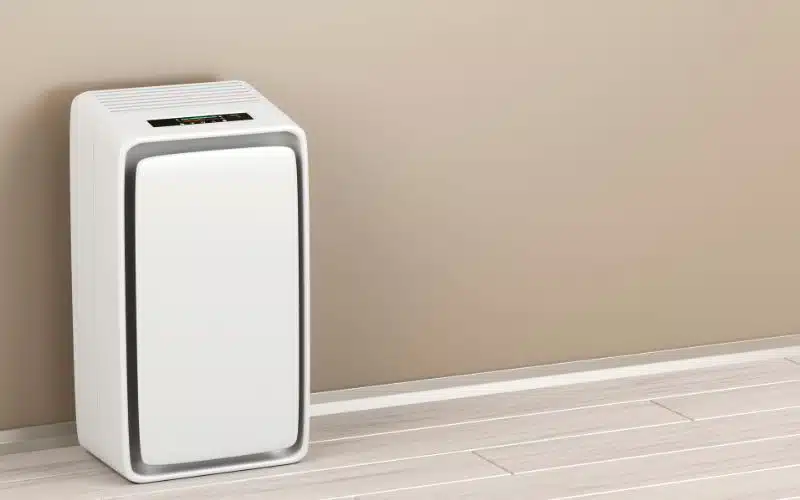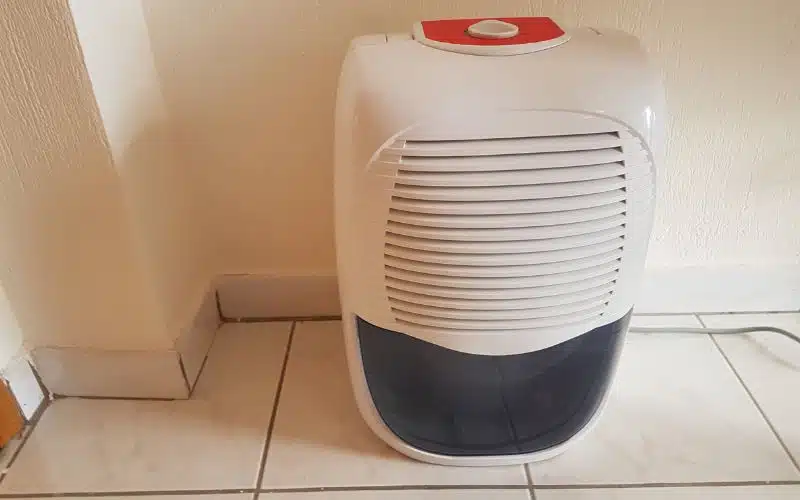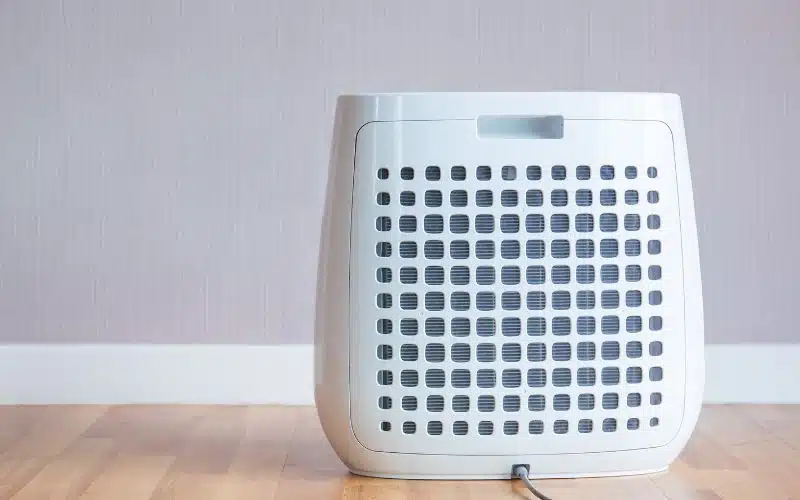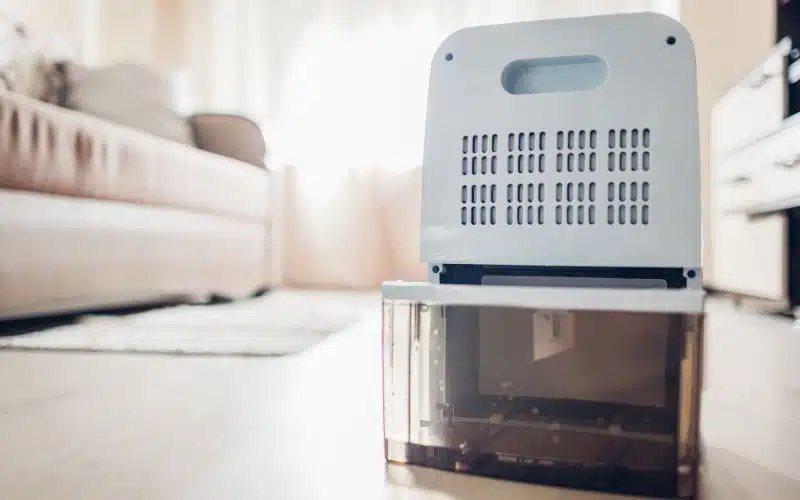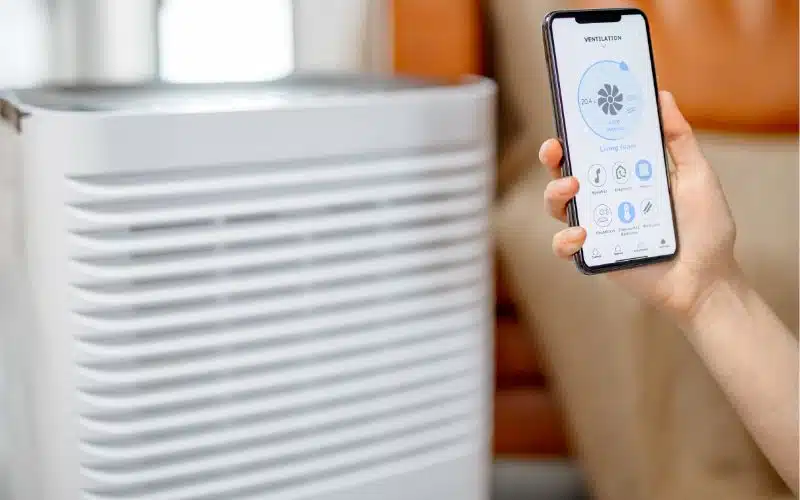Staying abreast of recalls is crucial for safety and optimal functionality in the ever-evolving world of home appliances.
Recently, there have been whispers of Hisense dehumidifiers facing a recall.
Hisense is a reputable brand for home appliances. Yet, even the most renowned brand can experience issues necessitating the recall of its products.
So, what’s the truth behind these rumors? Are Hisense dehumidifiers truly under scrutiny, or is it just a fleeting concern?
Lately, there have been recalls of dehumidifiers, but this product retraction does not affect the Hisense models of these devices. The affected appliances include units across the brands under Gree, including GE, Seabreeze, Norpole, SoleusAir, and Kenmore. This recall became necessary after reports of fire and burn hazards involving these devices.
In this article, you’ll discover if Hisense dehumidifiers are subject to a recall. You’ll also learn about the brands of recalled dehumidifiers and Hisense dehumidifiers’ safety.
Did Hisense Recall Their Dehumidifiers?
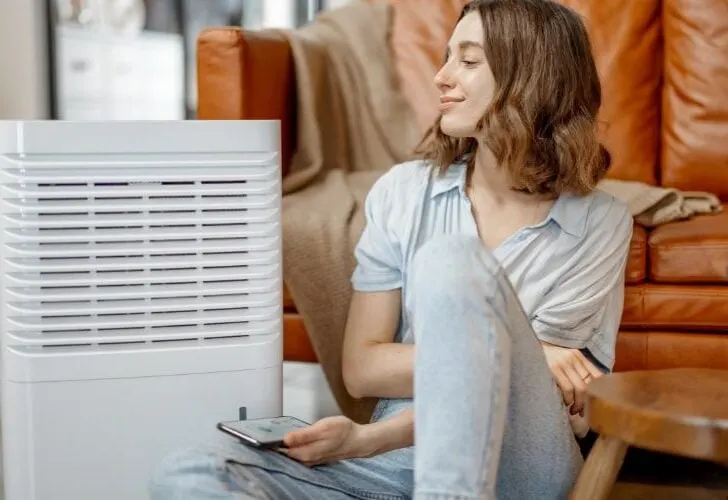
Hisense did not recall their dehumidifiers. Recently, there has been a wave of concerns with dehumidifiers leading to a recall across various brands of these appliances.
This clarification is necessary as users might get confused with the sweeping generalizations about the situation. This confusion may cause unnecessary agitations about Hisense appliances.
The recall predominantly affected units under Gree. These models include household names such as GE, Seabreeze, Norpole, SoleusAir, and Kenmore.
It’s important to stress that while these brands are under recall, Hisense is unaffected.
The following are reasons to believe Hisense dehumidifiers are not part of the recall:
#1. No Recall Statement by Hisense
In the event of a product recall, Hisense would have given an official report on the situation. For instance, there is an announcement on the recall of the Hisense French Door Refrigerator.
However, the brand has no statement about a retraction of its dehumidifiers. So, there is no recall of Hisense dehumidifiers.
Also, In the event of recalls, the Consumer Product Safety Commission would issue a report on the situation. However, the only reports of recalls are those of the brands mentioned earlier.
#2. Quality Control
Hisense ensures the production of high-quality appliances. This factor includes rigorous testing to ensure products like dehumidifiers function optimally and safely.
The brand also operates with strict adherence to international quality standards.
This commitment ensures they address potential issues at the production stage to avoid possible recalls.
#3. Safety Protocols
Safety is paramount for Hisense. Therefore, they build their dehumidifiers with multiple safety features that prevent common issues.
As such, product hiccups prevalent in other brands are uncommon in Hisense appliances. So, they don’t often recall their appliances.
#4. Customer Feedback
Hisense has strong customer feedback. They assess customer reviews frequently to ensure their products meet the market’s expectations and standards.
This constant feedback loop ensures that their products stay ahead of potential issues. These improvements make a recall an uncommon occurrence.
Recalls can create an environment of mistrust in the market. Hence, it is essential to differentiate between brands and understand the reasons behind such recalls.
Hisense Dedication to quality, safety, and customer satisfaction sets them apart. It’s a testament to their commitment that their dehumidifiers remain trusted amidst these reports.
Are Hisense Dehumidifiers a Fire Risk?
Like other appliances, Hisense dehumidifiers can be a fire risk. However, Hisense dehumidifier fire hazards are more likely to result from poor maintenance than the manufacturer’s fault.
That being said, here are the common factors that contribute to the fire hazard potential of Hisense dehumidifiers:
#1. Improper Usage
There are specific usage instructions for dehumidifiers. These directions include optimal operating temperatures and environments.
If users operate these appliances in conditions outside their recommendations, it can stress them. For instance, using a room dehumidifier in a large warehouse can elevate its fire risks.
#2. Lack of Maintenance
Over time, dust and other debris can accumulate inside dehumidifiers, blocking vents and restricting airflow. So, an efficient operation requires regular cleaning and maintenance.
When users fail to maintain their Hisense dehumidifiers, the units work harder and overheat. This situation increases the chances of a fire.
#3. Unit Damage
Surges in electrical power can damage sensitive components of a dehumidifier. These damages can result in overheating and malfunctioning of the appliance.
Also, as dehumidifiers age, their parts wear down and may not function as efficiently as before. This combination of deteriorating components and damages increases the risk of fires.
#4. Improper Repairs
When unqualified individuals undertake the repairs of Hisense dehumidifiers, they compromise their integrity. Such repairs might not address the root issue.
It becomes worse if they replace the original parts with nonstandard ones. This practice might introduce new risks and make the devices more prone to malfunctions and fires.
These are user-based factors that make Hisense dehumidifiers a fire risk. Certainly, no brand is perfect, and Hisense can release defective products too.
However, Hisense typically takes swift corrective actions if there are complaints of their appliances malfunctioning. Then, they address the issues to ensure safer devices for users.
Which Dehumidifier Brands Are Being Recalled?
The recalled dehumidifiers belong to Gree USA Inc. The company recalled over a million dehumidifiers because of fire and burn hazard concerns.
The Consumer Product Safety Commission said the recalled dehumidifiers were responsible for fire and overheating incidents.
Forty-two models of dehumidifiers are being recalled. These devices include those sold in stores like Walmart, Sam’s Club, Sears, Menards, and Lowe’s from 2011 to 2014.
The recall affected 1,560,000 units across the brands under Gree, including GE, Kenmore, SoleusAir, Seabreeze, and Norpole.
The table below contains some of the recalled units:
| GE | Kenmore | SoleusAir | SeaBreeze | Norpole |
|---|---|---|---|---|
| ADEH50LPQ1 | 407.53530310 | GL-DEH-45F-2Q3 | DH470SB | NPDH30PG-1 |
| ADEH50LQQ1 | 407.53550310 | GL-DEH-70EIP-6L3 | ||
| ADEH50LRL1 | 407.53571310 | GL-DEH-70F-2L3 | ||
| ADEH30LRQ1 | 407.53570310 | GM-DEH-30M-1Q3 |
The commission advises users of these appliances to unplug and stop their use immediately. Also, they should contact Gree to receive a refund.
How Safe Are Hisense Dehumidifiers?
Like other major appliance brands, Hisense designs its dehumidifiers with safety in mind. Hence, they are safe for use with correct application and maintenance.
Also, some factors contribute to their safety profile, including their safety standards. The brand typically makes these appliances meet or exceed industry safety criteria.
Many models have the auto shut-off feature that turns the device off when the water collection tank is full. It prevents overflows or leaks that could lead to electrical hazards.
Some models also possess filter alerts that let users know when to clean or replace filters. This feature helps maintain air quality and efficient functioning, reducing the risks of malfunction.
Hisense dehumidifiers offer a continuous draining option for users who prefer not to empty the tank manually. This feature further reduces the risk of water overflow or spills.
Furthermore, the devices come with operational indicators that show when they are working. These signals allow users to identify issues and address them promptly.
Hisense has done its part in ensuring the safety of its dehumidifiers. Users can also promote this safety by adhering to appliance manuals’ usage instructions.
You should always place dehumidifiers on a stable surface to avoid knocking them over. Ensure they are always away from direct heat sources and not blocking exits.
Also, avoid using dehumidifiers in extremely cold temperatures. Doing so can cause the coils to freeze and malfunction. Ensure there’s adequate space around them for air circulation.
Using a dehumidifier too small for a room can make it work harder and overheat, increasing fire risks. Therefore, ensure your dehumidifier’s capacity matches the size of your room.
Finally, always check for any recalls or safety notices related to your models. Hisense will issue a recall if they identify a safety concern.
